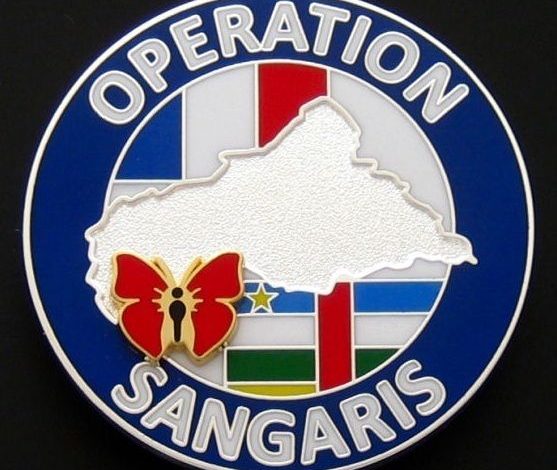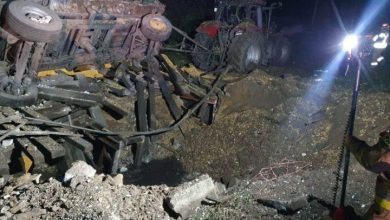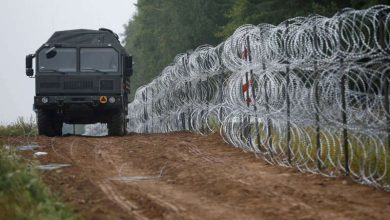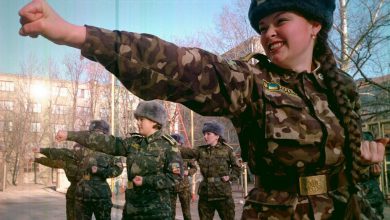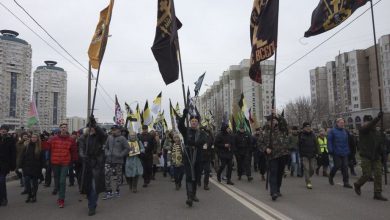Peacekeeping Operation Sangaris
In the Central African Republic, the French contingent continues to operate as part of Operation Sangaris. The French are trying to prevent the collapse of the country along the lines of ethnic and religious rift.
The French military contingent launched a peacekeeping operation in the Central African Republic (CAR), the former colony of France, after an armed coup in March this year turned into a “failed state.” In the territory of the Central African Republic, several armed groups based on a religious-ethnic basis operate, fighting against each other and committing mass crimes against humanity. The French operation was called “Sangaris”, after one subspecies of the local bright butterfly.
December 10 marks exactly one year from the day when another civil war broke out in the Central African Republic. The then president of the country, François Bozize (who came to power as a result of the coup of 2003, which caused the penultimate civil war of 2003-2007), turned to Paris for help against rebels from the northern Islamic group “Seleka” (“coalition”, translated from African Sango), supported by neighboring Sudan and Chad. Seléka sought to seize power in a country where Muslims make up only 20 percent of the population. Killed Muslims in a mosque in Bangui, December 5, 2013x Killed Muslims in a mosque in Bangui, December 5, 2013.
More than 50 percent of the inhabitants of the 5 millionth CAR are Christians, about 30 percent have always practiced ancient African cults. But in December 2012, France was preparing for a military operation against the Islamists in Mali, and Paris did not dare to send new military units to another African country (there was a small French military contingent guarding the airport in the capital of Bangui for decades); Operation Serval in northern Mali began in January and continues to this day.
In the Central African Republic, meanwhile, militants “Seléks” captured the capital and the presidential palace on March 23-24. Francois Bozize fled to Cameroon, and rebel leader Michel Jotodia declared himself the new head of state. Formally, the Selka was disbanded, but in reality the different armed Islamist groups that were part of this coalition got out of control and began to purposefully rob and terrorize the Christian population. In turn, residents of Christian and animist villages created their own anti-balak self-defense units, which began to kill Muslims, including civilians of the same kind. Tens of thousands of people fled to neighboring states.
On November 26, France finally sent an additional 250 soldiers to the Central African Republic, and on December 5, the UN Security Council approved the Paris decision to launch a large-scale military operation in the Central African Republic. Today, 1,600 French troops are active in the CARs, as well as military contingents from several African countries, South Africa, Angola, Gabon and Cameroon.
French Defense Minister Jean-Yves Le Drian said on France24 that Operation Sangaris should force all armed groups to lay down their arms:
Until now, we have simply observed the situation, patrolled, demonstrated our presence to show all these more or less organized groups operating in cities and forests that the period of impunity has its own time limits. Now we are starting a new phase, having received the consent of the international community. Purpose: to force these groups to lay down their arms, and in case of disobedience – to use force so that they do so.
It is in President Hollande’s interest to complete Operation Sangaris as soon as possible, says Christophe Chatelot, editor-in-chief of the international department of Le Monde. However, the problem is that the Champs Elysees does not quite understand who to help: the former president, François Boziz, the Muslims who hold real power, or the Christian majority, which does not have a pronounced leader:
The French operation is to restore a minimum order in a country torn by conflict. Its purpose is to restore control over the main transport arteries connecting the Central African Republic with Cameroon and other states that supply food here, as well as put an end to robbery and extreme instability. But the risk of wallowing in this swamp is very great. Refugees from the Central African Republic in Chadx Refugees from the Central African Republic in Chad These are disparate armed groups: on the one hand are fragments of the Séléka, and on the other are Christian self-defense units opposing the Islamists. It is extremely difficult to speak of control over the entire territory of the country, equal to the territories of France and Belgium, taken together. From a political point of view, France also has a big problem: President Bozize and his Prime Minister were not able to restore order in the country. France invades to do what? To put at the head of this state – whom? To preserve the current power, only without the “Celeka”? The transfer of power to local leaders after 18 months, as they say in Paris, is an unacceptably long period. The former president controlled only the capital and the surrounding area of the city. The north bordering Chad did not submit to the central authorities, nor did the areas adjacent to Cameroon and Congo. The borders of the Central African Republic are absolutely arbitrary, and through them everything that you can imagine is smuggled. Instability reigns in the border areas, and there is a danger of destabilization in neighboring states.
Formation of the Christian anti-balak self-defense units x Formation of the Christian anti-bala self-defense units
Judging by the results of sociological research published in Paris these days, most French people do not support the idea of a new military intervention in another former colony. According to a survey conducted by the OpinionWay Institute, 64 percent of respondents are against the operation in the Central African Republic. This figure, as usual, will increase if the French soldiers begin to suffer losses. On December 10, the General Staff of the French Army reported the deaths of two troops during the disarmament operation in Bangui.
The French military, who arrived in the Central African Republic, on Saturday began to advance north of the country’s capital, Bangui, to take control of the road and the city. This was reported by a representative of the French troops to Reuters.
From the west, 200 French troops stationed in Cameroon entered the Central African Republic. UN officials believe that the tactics of peacekeeping forces should not be reduced to establishing control only over roads, but also over the hinterland. The French military says night patrols have been introduced in the country, as well as foot patrols. “We are going everywhere, including to the areas indicated to us by humanitarian organizations and the civilian population,” the military said.
In the predominantly Christian city of Bouar occupied by the troops in the west of the Central African Republic, locals met the French military as their saviors.
Representatives of the transitional government of the CAR on Saturday ordered all armed men, except for peacekeeping forces and presidential guards, to leave the streets of Bangui. Previously, about 10 thousand residents of Bangui fled the city to get to the airport and fall under the protection of the French troops stationed there. Thousands of people tried to hide in churches.
After receiving a UN Security Council mandate to introduce peacekeepers to the Central African Republic, French President Francois Hollande issued an order on Thursday to launch an operation in the Central African Republic called “Sangaris” by the name of a species of butterfly living in Central Africa. 1200 French troops should complement the contingent of African peacekeepers who could not stop the country from sliding into chaos. UN Secretary General Ban Ki-moon has already said that a total of about 9,000 peacekeepers will be needed to stop the violence in a country of 4.6 million people.
French troops were introduced to prevent the escalation of inter-religious conflict between the militants of the Muslim group Seleka and Christian communities. Over the past three days, more than 300 people have died as a result of this conflict in Bangui.
This post is also available in:
 English
English  Русский (Russian)
Русский (Russian)

